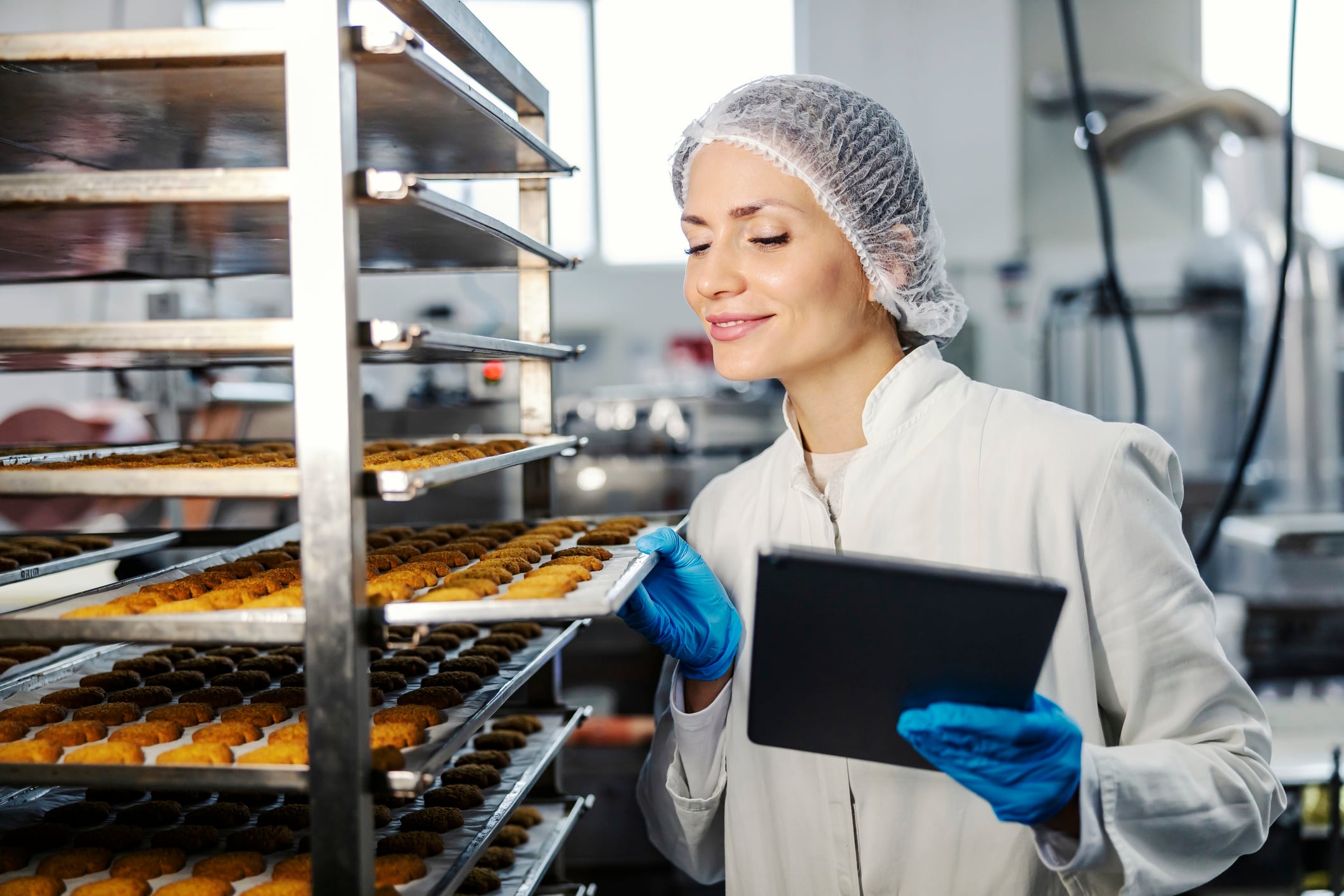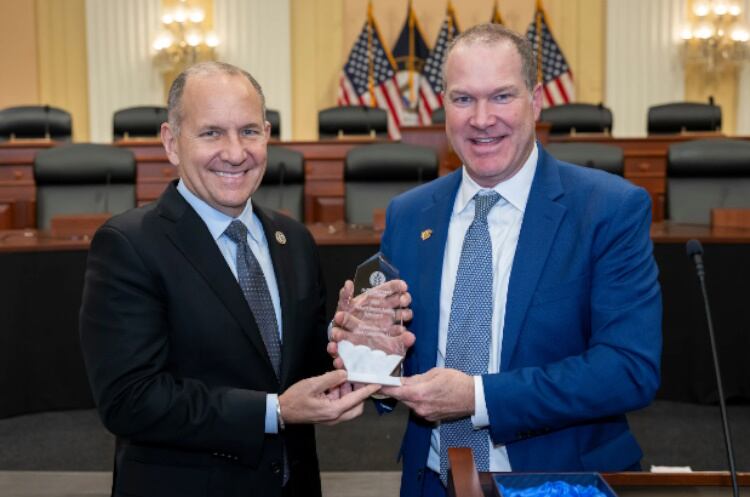As the FDA and HHS move ahead with the phase-out of synthetic food dyes in the US, the baking industry is preparing to adapt but the conversation isn’t stopping there. At the American Bakers Association’s 2025 Convention in Orlando, Florida, last month, it was just one ingredient in a much broader mix of innovation, advocacy and strategic reinvention.
Bill Quigg, chairman of the ABA and president of Richmond Baking, didn’t shy away from the challenge. “Our industry is committed to staying informed and responsive,” he said during an exclusive interview with us. “But that doesn’t mean we pause innovation. Quite the opposite - this is a catalyst.”
The sense of urgency is real. Quigg and ABA president and CEO Eric Dell emphasised that the food dye ban, while a pressing regulatory shift, is just one among several major dynamics reshaping the $100 billion US baking industry: a sector represented by ABA’s 375+ member companies and more than 1,200 commercial facilities.
“Consumers are speaking louder than ever about what they want in their food,” said Dell. “That includes transparency, health and wellness options, sustainability - and the industry is constantly innovating to deliver what the consumer asks for.”
Balancing decadence with nutrition

The current landscape, as Quigg noted, is defined by duality: “On one end, you have indulgence. On the other, health and wellness. And both are thriving.”
That’s a key insight as bakers confront evolving consumer preferences. Functional baked goods, lower-sugar snacks, high-protein formats and nostalgic comfort foods all coexist in today’s marketplace. According to Dell, the trend toward premium products - like artisan breads - isn’t about flash. It’s about perceived value, quality and in many cases, healthier formulations.
Innovation is the key ingredient

In 2024, the ABA unveiled a bold new strategic plan centred on three goals: becoming a Destination Workplace; driving Category Growth; and achieving a Higher Level of Impact. That roadmap remains unwavering, even amid political and economic uncertainty.
“We’re staying the course,” Quigg affirmed. “In fact, it feels like we built this plan for this exact moment.”
He pointed to the value of membership, especially for smaller companies: “Navigating regulations, communicating with our teams, advocating on behalf of our businesses - ABA helps us do all that. There’s never been more value in membership.”
Dell concurred, noting the ABA’s continual feedback loop with members. “We review KPIs and update as needed. This is not a static strategy. It’s responsive and it’s working.”
Rewiring the baking experience

Perhaps the most energising theme at the Convention was the promise of artificial intelligence (AI). “Even a company as small as ours is using AI,” said Quigg. “It fuels creativity and allows us to explore ideas from outside our category - snacks, chips, whatever inspires.”
He grinned as he recounted trying a spicy pickle Goldfish cracker: “I gave the guy who made it a high five. That’s the kind of innovation we need: fun, unexpected and memorable.”
Dell added that after the pandemic-induced pause in R&D, many equipment manufacturers have now caught up. “This year’s IBIE [International Baking Industry Exposition] will showcase more innovation than 2022,” he predicted. “From AI to robotics, this is the year we break through.”
One standout example: Dell toured a bakery using robotic scoring for bread. “The employees who previously did the task weren’t laid off - they were upskilled. That’s how you handle labour shortages: by investing in people, not replacing them.”
Rebuilding the supply chain
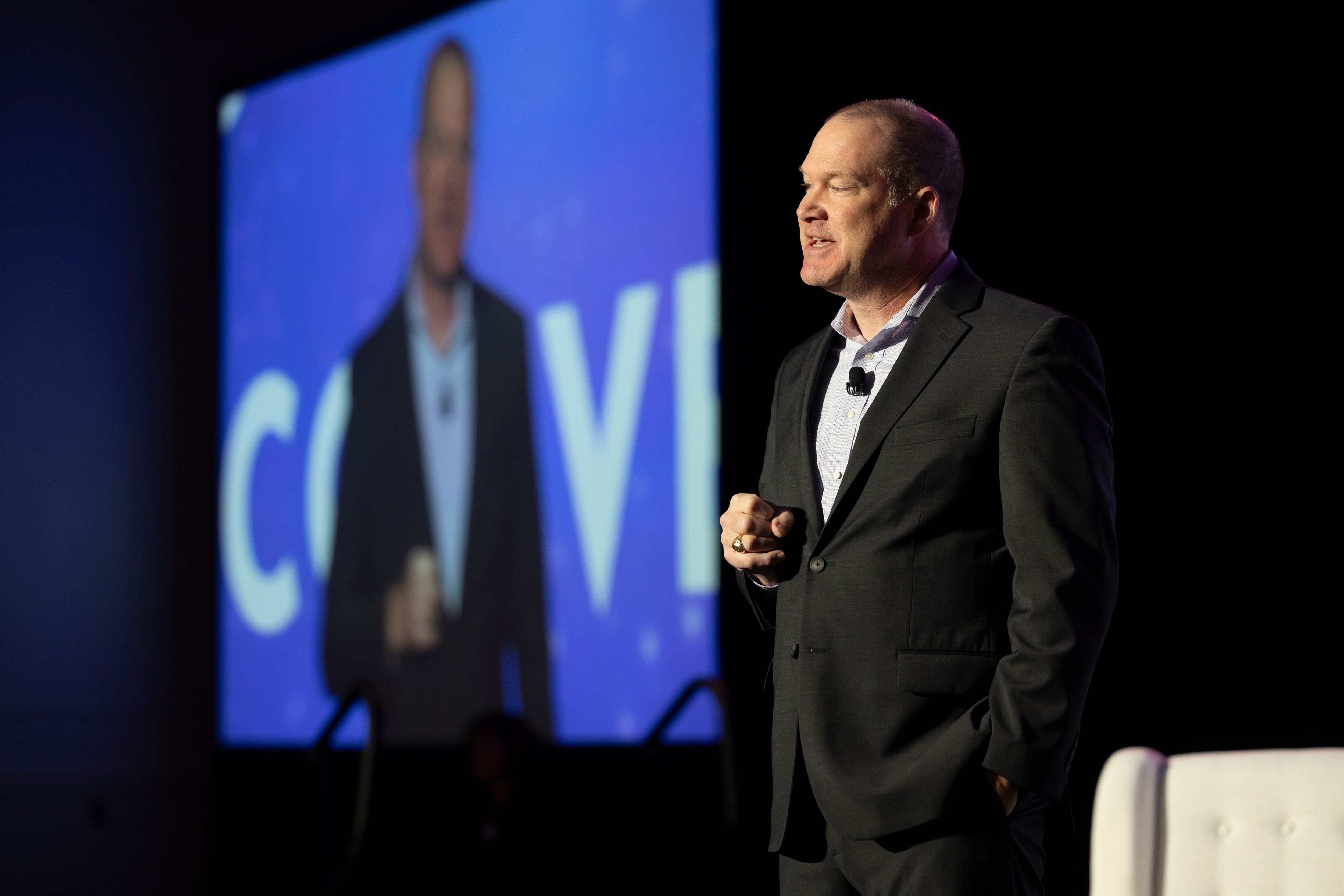
The post-pandemic world has exposed vulnerabilities in global supply chains. From port strikes to tariff threats, bakeries are under pressure to secure reliable ingredient access.
Dell acknowledged that while many bakers are evaluating their sourcing options, flexibility is the new currency. “We’re advocating to keep supply chains stable, but also to ensure businesses have the freedom to adapt: whether that’s sourcing differently or stockpiling smartly.”
He also flagged ABA’s $454 million estimate on the potential annual impact of new tariffs. “When capital expenditures are delayed due to uncertainty, it impacts growth. Lawmakers need to understand that.”
Quigg noted that indecision has become a silent disruptor: “If you can’t make a business decision because of policy volatility, you can’t plan. That hurts us all.”
Workforce of the future
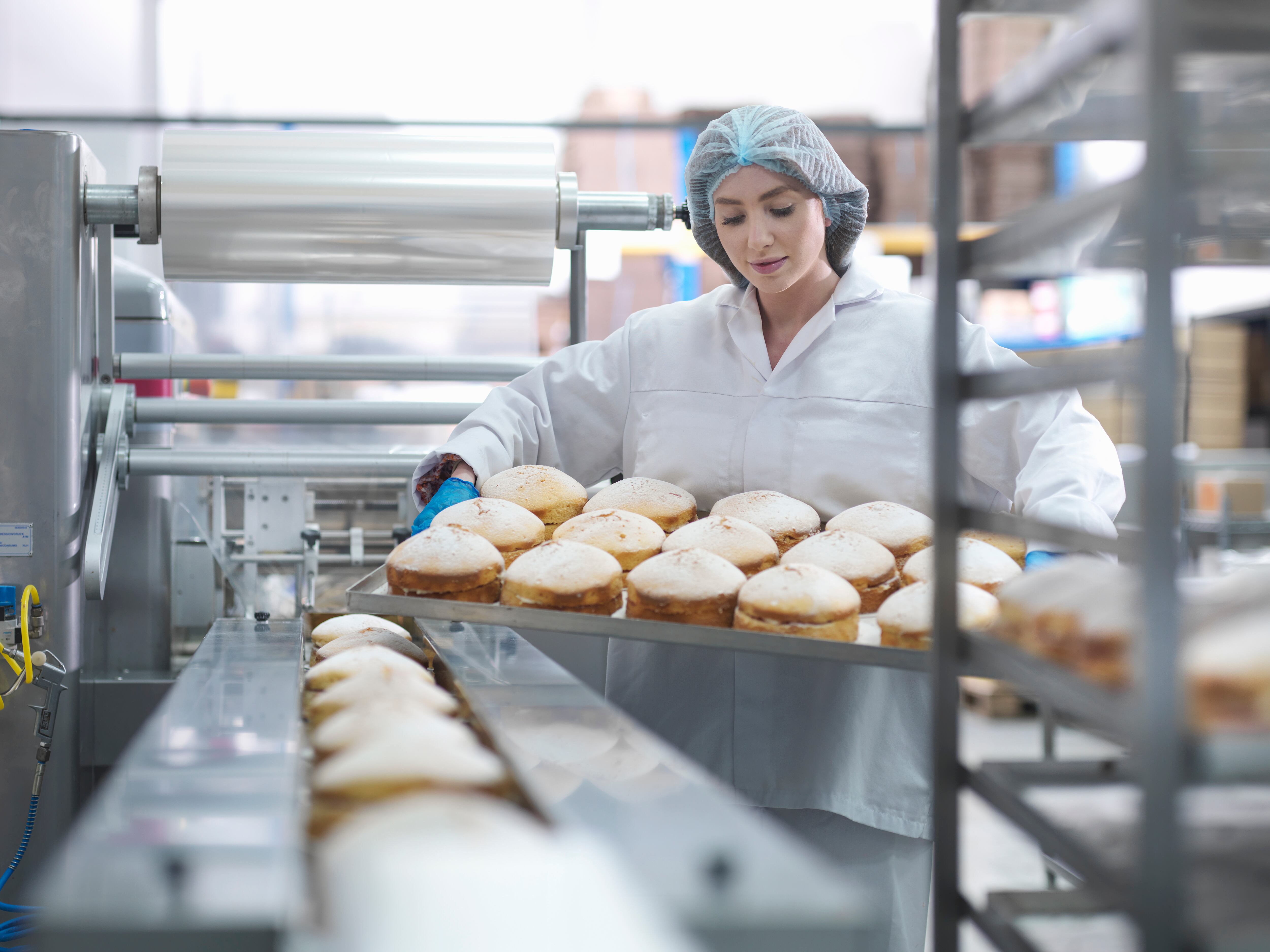
The looming talent shortage - estimated to reach 53,000 unfilled jobs by 2030 - remains a dominant concern. But ABA leaders see opportunity, not despair.
“The workforce is changing. People want purpose, flexibility, balance,” said Dell. “And maybe business leaders can learn something from that.”
One of ABA’s proudest recent achievements is the Champions for a Better Tomorrow Award, which highlights member initiatives that make baking a more meaningful, mission-driven career.
“Those companies weren’t creating programmes to win awards: they were already doing the work,” said Quigg. “We’re just finally telling those stories.”
Workforce study
A joint study from the American Bakers Association (ABA), the American Society of Baking (ASB) and the International Dairy Deli Bakery Association (IDDBA) sheds light on workforce challenges facing the US commercial baking industry.
Conducted by Cypress Research Associates, the study provides an indepth analysis of skills gaps, business impacts and proven strategies for recruiting, training and retaining talent. It focuses on both hourly production roles like machine operators and maintenance specialists, and salaried positions including R&D, quality control, and supply chain professionals.
It updates a 2016 benchmark, offering a nine-year comparison of workforce shifts and opportunities for sustainable growth. Key findings include the need for clearer career paths, expanded technical training and stronger workplace cultures to improve employee retention.
“The talent challenge isn’t new, but the findings from this study give us new clarity,” said Dell. “By collaborating with our industry partners, we’re offering baking businesses actionable insights focused on securing commercial baking’s future as a destination workplace.”
The full report will be made available exclusively to members of ABA, ASB and IDDBA.
Advocating with science & collaboration
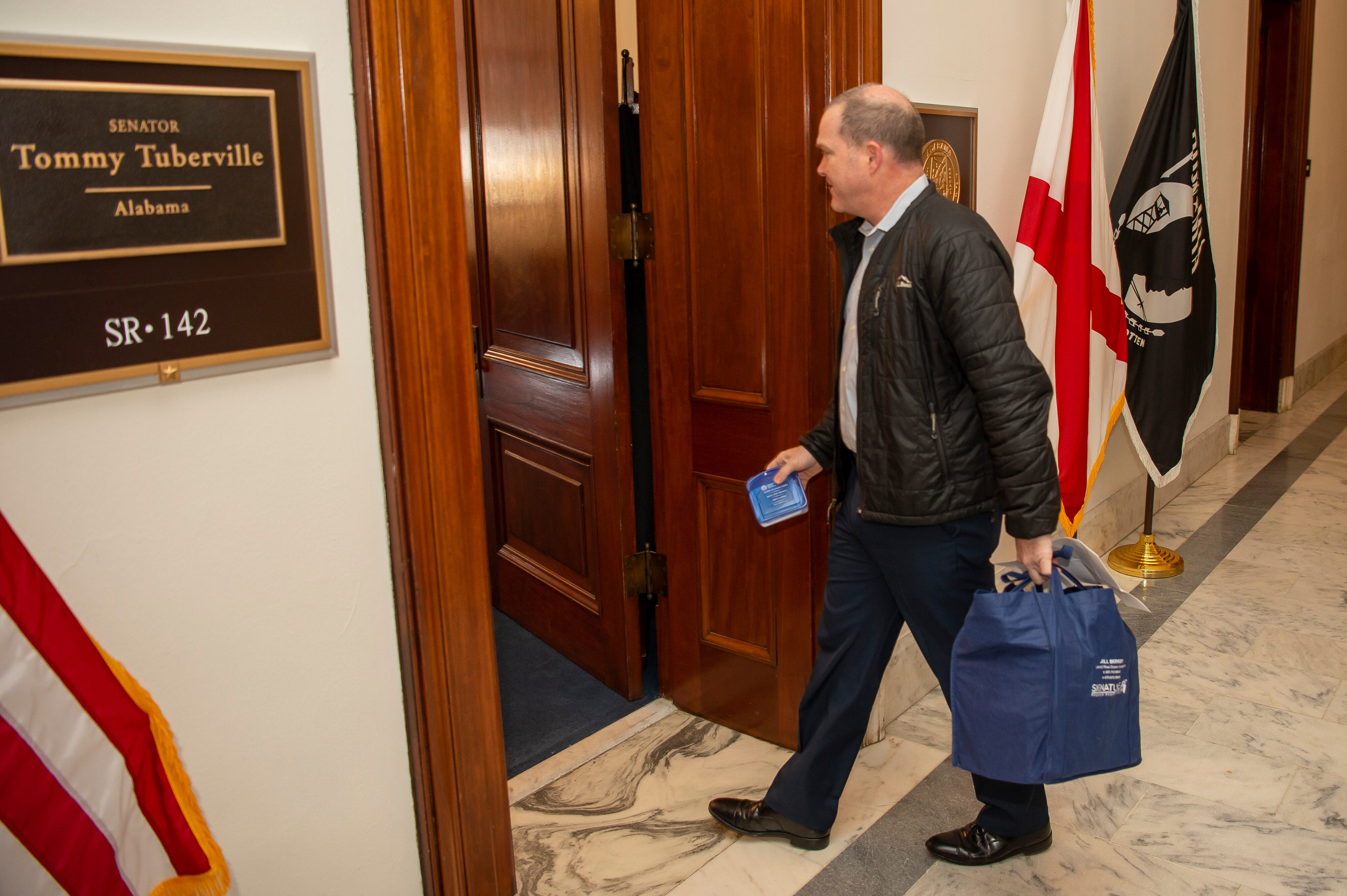
In an era when nutrition policy is trending on social media, the ABA’s role as a policy advocate has never been more complex or more essential.
“Food safety and nutrition have been top priorities for us for years,” Dell said. “But now it’s on the front page, above the fold. That changes everything.”
Dell’s approach to advocacy is rooted in bipartisanship. “You can’t always say no [when faced with a complex challenge]. You find the middle ground. That’s how progress happens.”
Science-based policy is the ABA’s lodestar, echoed Quigg: “We’ve got decades of research ready. This isn’t just about social media trends: it’s about what’s scientifically sound.”
The bakery of 2030
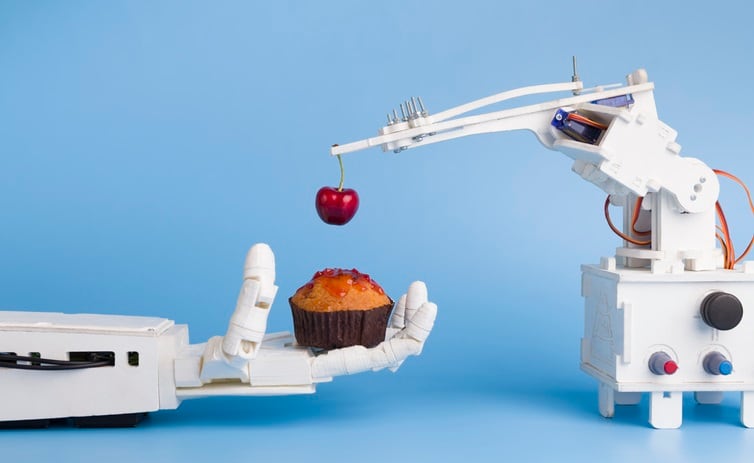
As the industry looks to the horizon, both leaders agree: adaptability will define success.
“The bakery of 2030 is going to be more tech-enabled, but also more human-centred,” said Dell. “It’s not just about installing machines. It’s about preparing people to thrive alongside them.”
Quigg added: “Relationships will be everything. Vendors, partners, peer bakers - we need to talk, collaborate and share ideas. That’s how we all get better.”
In a world of disruption, the US baking industry is showing resilience, unity and a renewed commitment to innovation. From AI to regulatory advocacy, workforce transformation to sustainable practices, the message from ABA’s 127th year is clear: the future is already in the oven and it smells promising.


